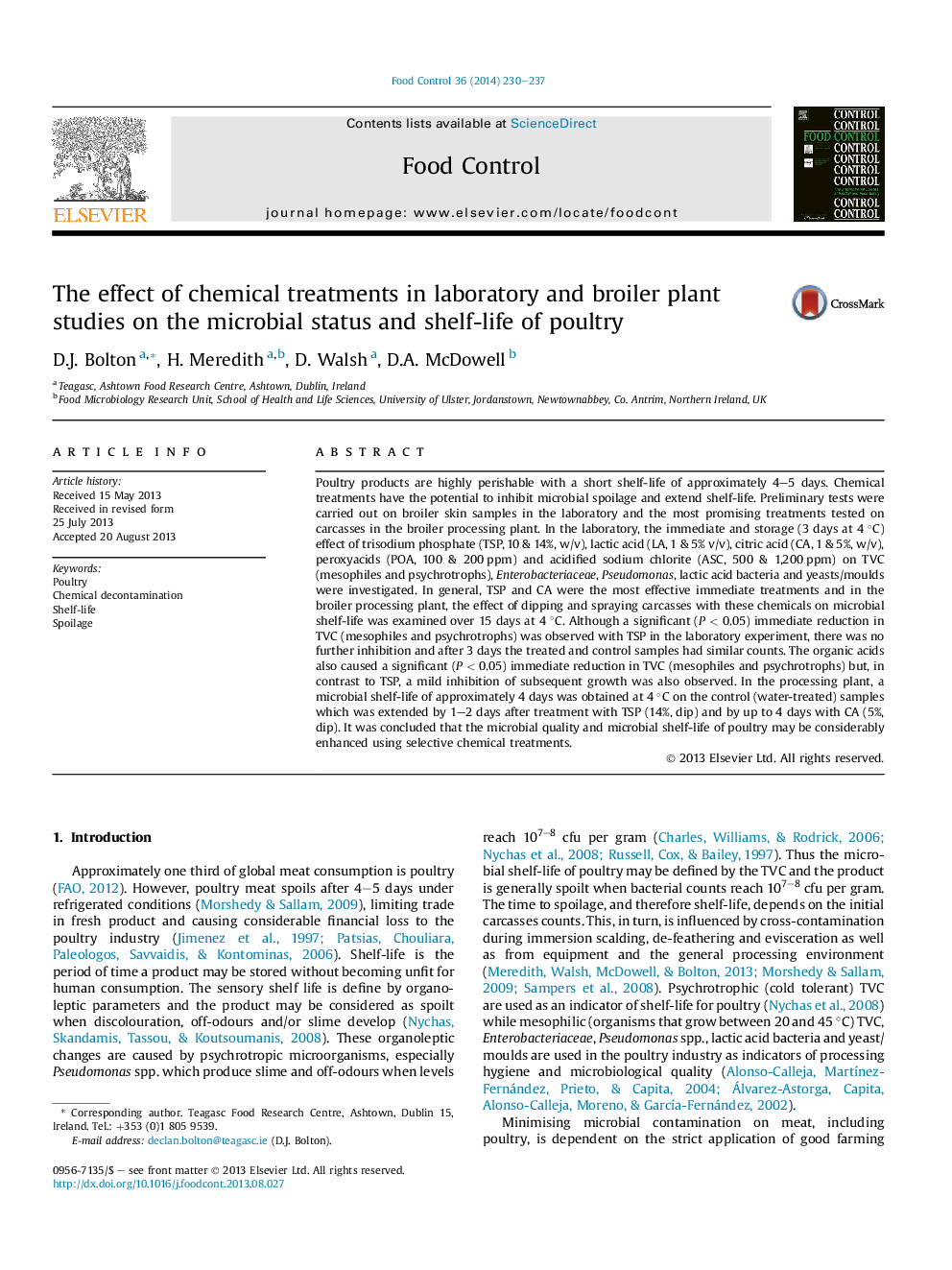| Article ID | Journal | Published Year | Pages | File Type |
|---|---|---|---|---|
| 6392144 | Food Control | 2014 | 8 Pages |
â¢TSP and CA were the most effective poultry decontamination treatments.â¢TSP (14%, dip) extended poultry shelf-life by 1-2 days.â¢CA (5%, dip) extended poultry shelf-life by up to 4 days.
Poultry products are highly perishable with a short shelf-life of approximately 4-5 days. Chemical treatments have the potential to inhibit microbial spoilage and extend shelf-life. Preliminary tests were carried out on broiler skin samples in the laboratory and the most promising treatments tested on carcasses in the broiler processing plant. In the laboratory, the immediate and storage (3 days at 4 °C) effect of trisodium phosphate (TSP, 10 & 14%, w/v), lactic acid (LA, 1 & 5% v/v), citric acid (CA, 1 & 5%, w/v), peroxyacids (POA, 100 & 200 ppm) and acidified sodium chlorite (ASC, 500 & 1,200 ppm) on TVC (mesophiles and psychrotrophs), Enterobacteriaceae, Pseudomonas, lactic acid bacteria and yeasts/moulds were investigated. In general, TSP and CA were the most effective immediate treatments and in the broiler processing plant, the effect of dipping and spraying carcasses with these chemicals on microbial shelf-life was examined over 15 days at 4 °C. Although a significant (P < 0.05) immediate reduction in TVC (mesophiles and psychrotrophs) was observed with TSP in the laboratory experiment, there was no further inhibition and after 3 days the treated and control samples had similar counts. The organic acids also caused a significant (P < 0.05) immediate reduction in TVC (mesophiles and psychrotrophs) but, in contrast to TSP, a mild inhibition of subsequent growth was also observed. In the processing plant, a microbial shelf-life of approximately 4 days was obtained at 4 °C on the control (water-treated) samples which was extended by 1-2 days after treatment with TSP (14%, dip) and by up to 4 days with CA (5%, dip). It was concluded that the microbial quality and microbial shelf-life of poultry may be considerably enhanced using selective chemical treatments.
